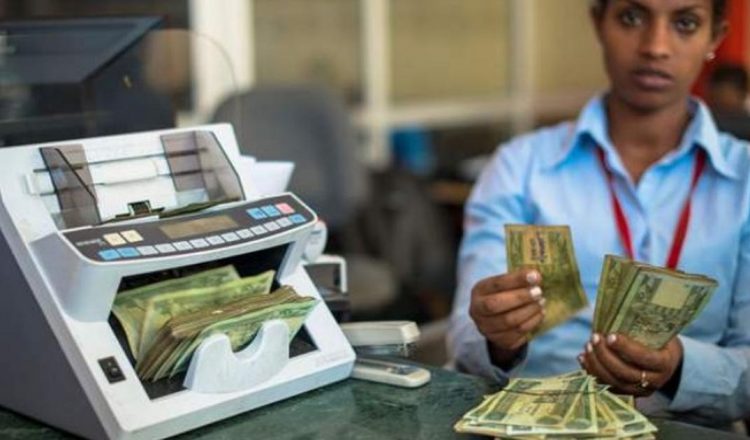Ethiopia’s largest commercial bank, the Commercial Bank of Ethiopia (CBE), is in a race against time to recover over $40 million withdrawn by customers following a significant systems glitch.
Early Saturday morning, customers at CBE discovered that they could withdraw or transfer more money than they had in their accounts. This realization quickly spread among students, leading to a withdrawal frenzy that resulted in long lines at campus ATMs and mass transfers to other banks. According to local media, more than $40 million was siphoned off during the glitch, which took several hours for CBE to rectify by freezing all transactions.
The president of CBE, Abe Sano, revealed that much of the withdrawn money was taken by students. “News of the glitch spread across universities largely via messaging apps and phone calls,” Sano said in a press conference on Monday. He confirmed that students from Jimma University, Dilla University, and other institutions were among the primary beneficiaries of the erroneous withdrawals.
At Jimma University Institute of Technology, a student recounted the moment he realized he could withdraw large sums of money. “I did not believe it was true,” he said. He and many others continued to withdraw money until police arrived to halt the activity. Similarly, a student from Dilla University reported that withdrawals occurred between midnight and 2 AM local time.
CBE, which has over 38 million account holders and has been operational for 82 years, faced a critical challenge in the wake of the glitch. Ethiopia’s central bank issued a statement on Sunday, citing a “glitch” during “maintenance and inspection activities” but did not address the massive unauthorized withdrawals.
Sano assured customers that their personal accounts were secure and that CBE was not the target of a cyber-attack. “The loss incurred is small when compared to the bank’s total assets,” he said, emphasizing the bank’s stability despite the setback.
In response to the incident, at least three universities have issued statements urging students to return any money that does not belong to them. Sano highlighted that students returning the money would not face criminal charges, but it’s unclear how many have complied. Reports from Jimma University indicate a reluctance among students to return the funds, though police presence on campuses suggests efforts to recover the money are ongoing. Meanwhile, Dilla University officials have noted that some students are voluntarily returning the money.
The glitch has raised questions about the robustness of CBE’s banking systems and the measures in place to prevent such occurrences. It also highlights the ethical dilemmas faced by individuals when unexpected opportunities arise due to system failures.
As CBE works to rectify the financial discrepancy, the incident serves as a stark reminder of the vulnerabilities in banking systems and the potential for human behavior to exploit these weaknesses. The bank’s swift response and ongoing efforts to recover the funds will be crucial in restoring customer trust and ensuring the stability of Ethiopia’s financial sector.





